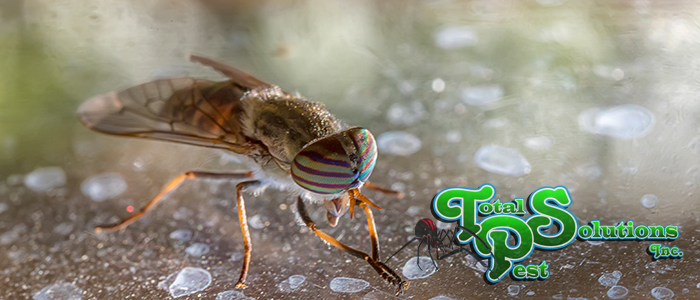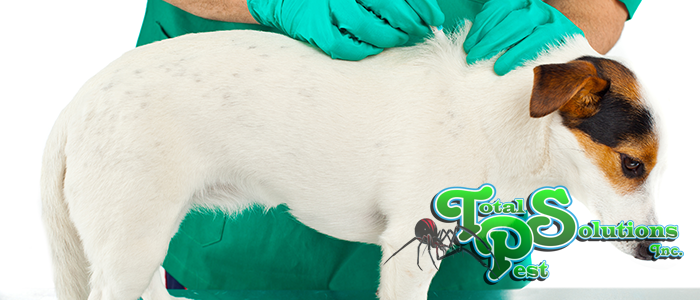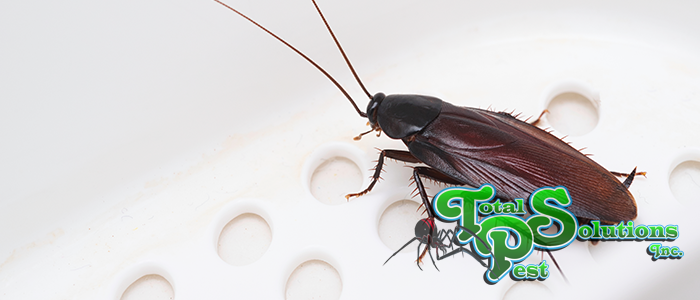
Do Horse Flies Bite?
The shortest answer is, yes; they do! As their name suggests, horse flies—a fly found throughout North America in both suburban and rural areas typically near bodies of water—generally target horses and other similar mammals.
However, they most often bite moving objects or dark objects, so humans can be subject to their nasty bites. The males feed on plant nectar and pollens, but female horse flies feed on blood and have strong, specialized mouths for tearing and lapping up blood; that’s what gives them a significantly more painful bite than insects that pierce the skin and suck the blood right up like mosquitos.
Horse flies can be relentless, often continuing to bite until they can make off with their meal of blood secured or they are killed. It’s even been noted that rarely, a horse fly may chase its target for a short period.
Symptoms
Probably the first thing you’re going to notice if you’re bitten by a horse fly is the bite itself, as they can be rather painful. You may also experience—like with most insect bites—itchiness, redness, swelling around the bite area, or even an allergic reaction. If you happen to be allergic to the bite of a horse fly, you may additionally experience symptoms like dizziness, inflammation, a raised red rash (hives), or wheezing.
Thankfully, unlike mosquitos who can spread multitudes of diseases through their bites, horse flies are not known to be disease-ridden, nor even capable of spreading harmful bacteria. But be advised this doesn’t mean that they can’t, it just means that it’s far more unlikely than other insects like ticks and mosquitos.
How to Treat a Horse Fly Bite
If you’re bitten by a horse fly, the most important thing you can do is resist the temptation to scratch at the bite wound, as this can increase your risk of infection both by potentially opening the wound more or by tracking germs and bacteria from your hands to the site of the wound.
The first step is to clean the wound with warm water and soap. To relieve some of the itching, redness, and swelling, the second step is to do a cold press and place an ice pack on the area affected by the bite for about ten minutes. If swelling is a concern, raise the affected area if you can to reduce the swelling. Avoid applying “home remedies” to the site of the bite, as they may not help and in some cases can make the problem worse.
All that’s left to do to treat a horse fly bite is the usage of over-the-counter products. You can take medication to manage pain, discomfort, and itching, and you can also use ointments or creams to reduce the swelling and help stop the itching.
When to Call a Doctor
Bites from horse flies typically resolve themselves in a few hours or days, so you generally will not need to consult a doctor at all. However, if you’re experiencing more severe symptoms or experiencing symptoms for longer than that, it’s time to call your doctor.
If you feel or notice any of the following symptoms, contact your doctor immediately:
- Signs of infection like pus, fever, or swollen glands.
- Dizziness.
- Wheezing or difficult breathing.
- Trouble swallowing.
- Swelling in the throat, mouth, or face.
- Increased heart rate.
- Vomiting.
- Loss of consciousness.
If you need further great information, feel free to contact our experts at Total Pest Solutions.
continue reading
Related Posts
The Importance of Scheduling Regular Lawn Care Services for a […]
The Ultimate Guide to Spotting and Eliminating Flea Infestations in […]
The Menace of Cockroach Infestations in Lake Alfred Homes Cockroach […]






